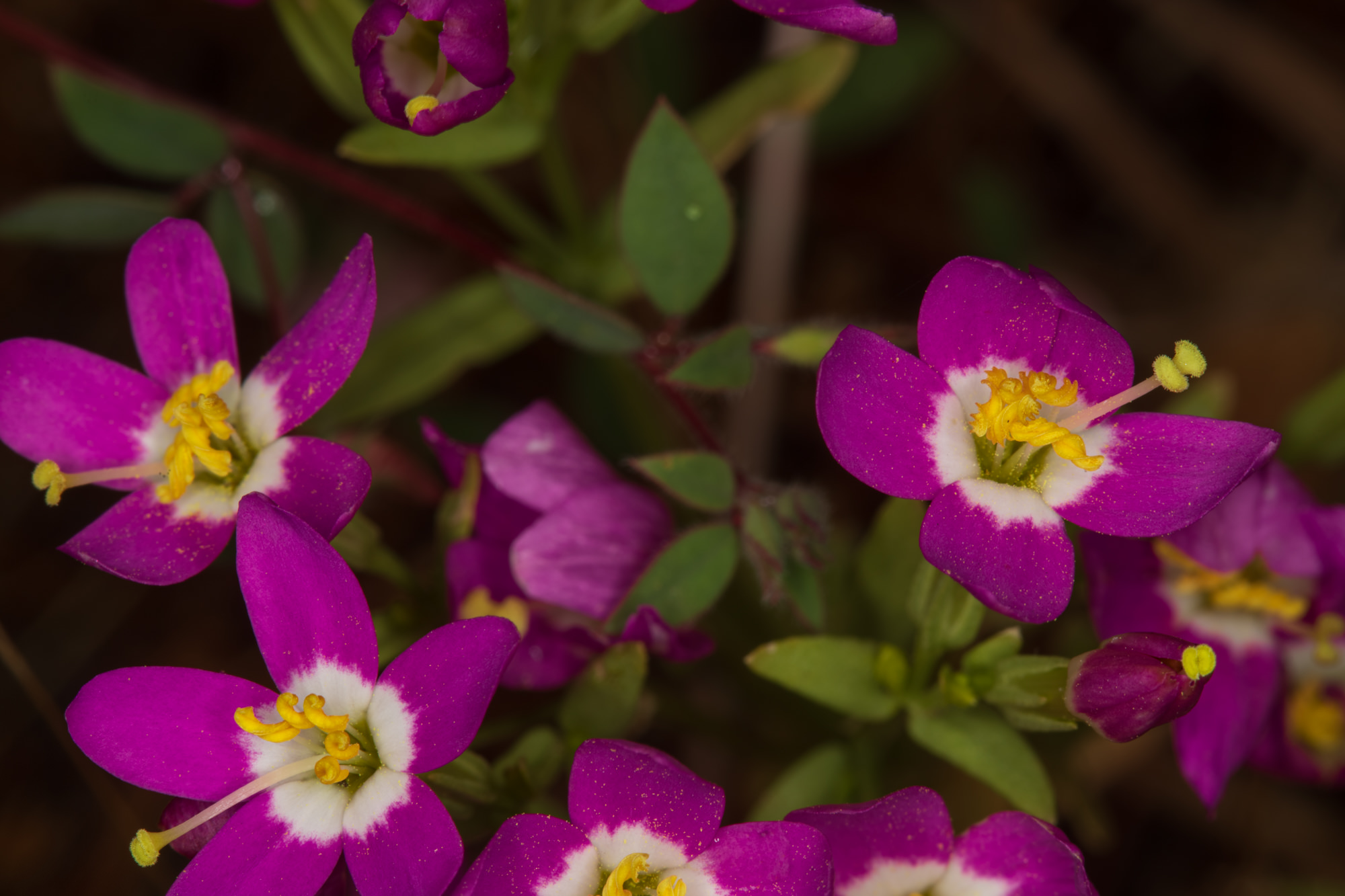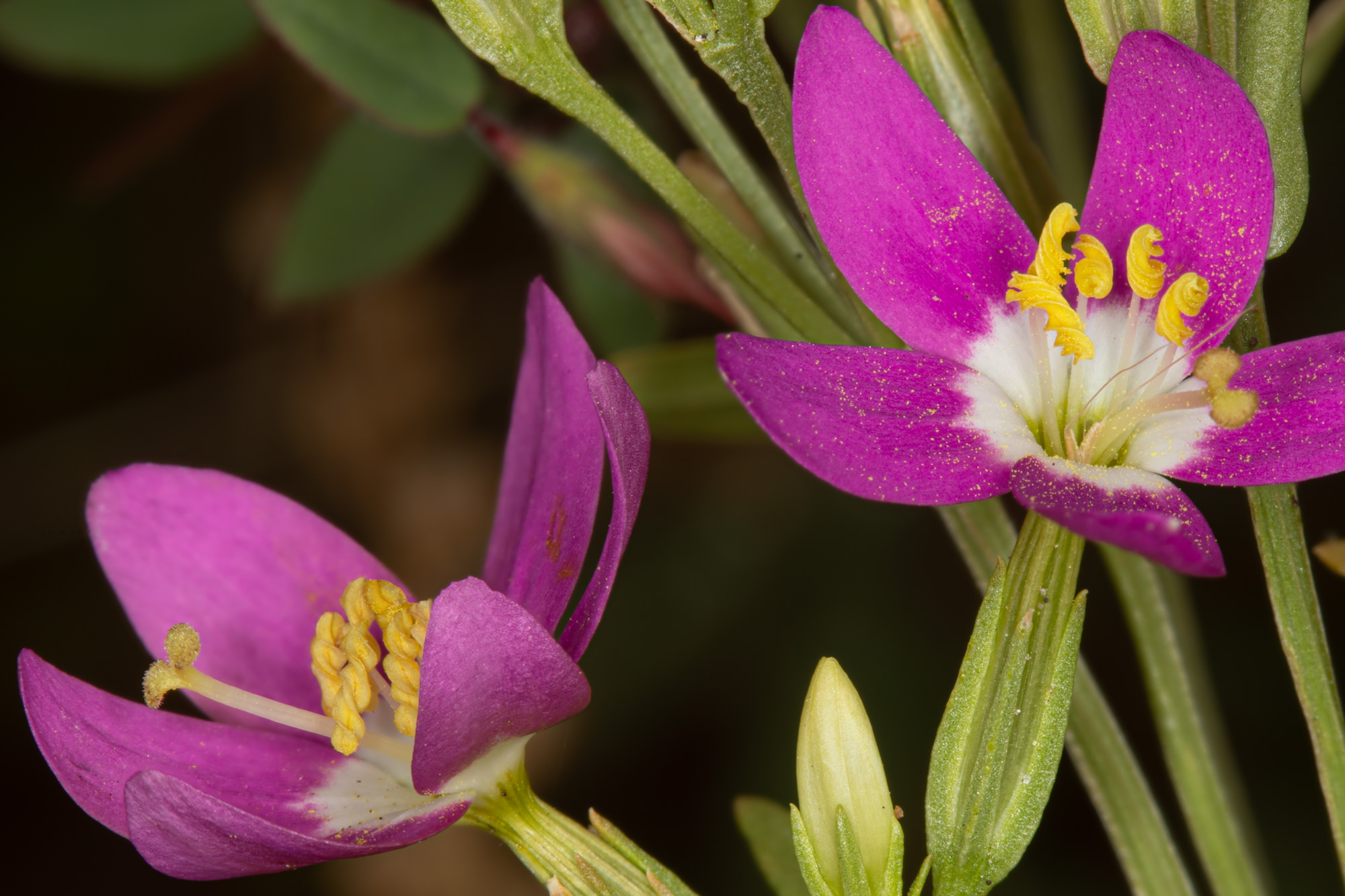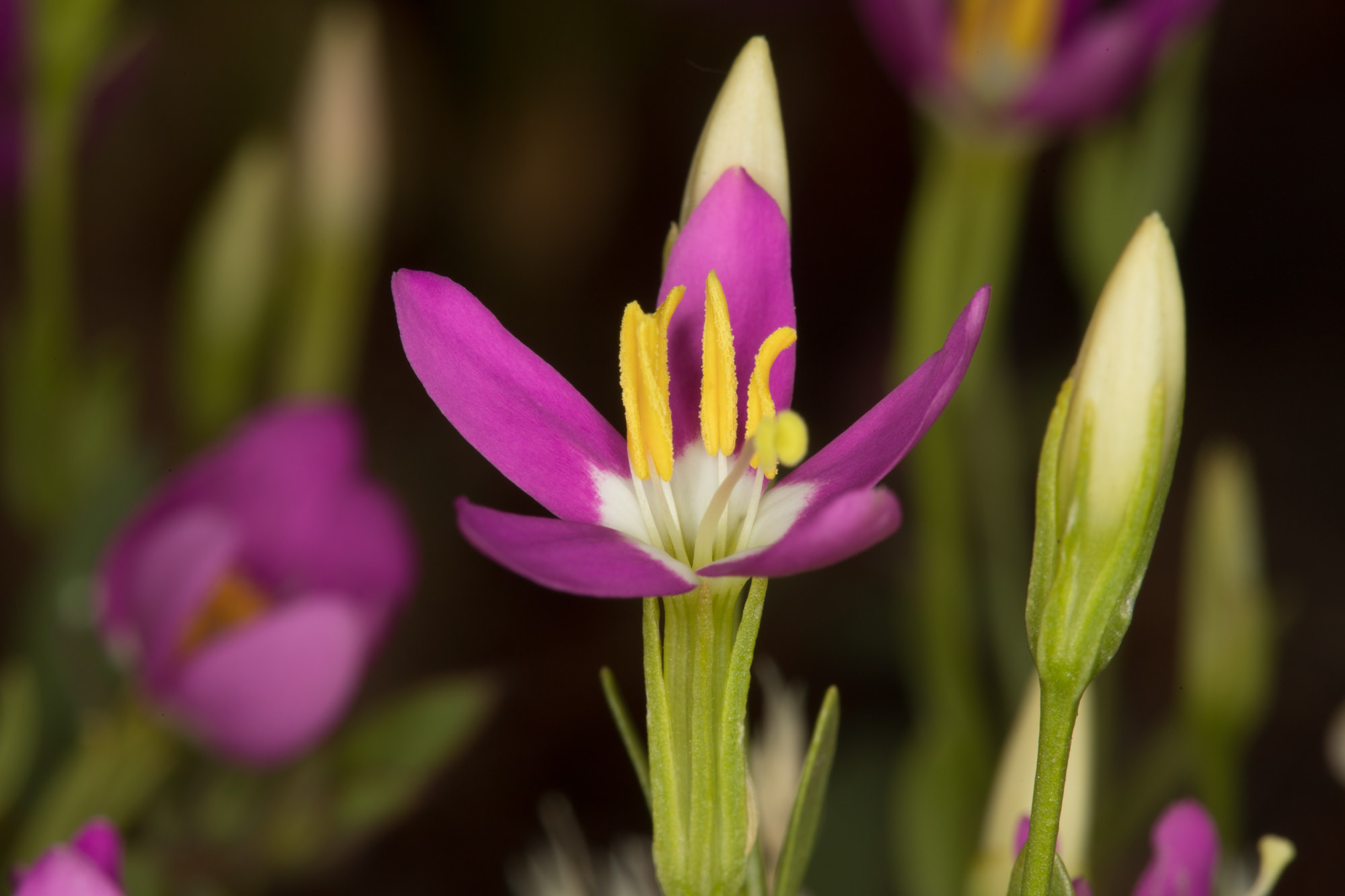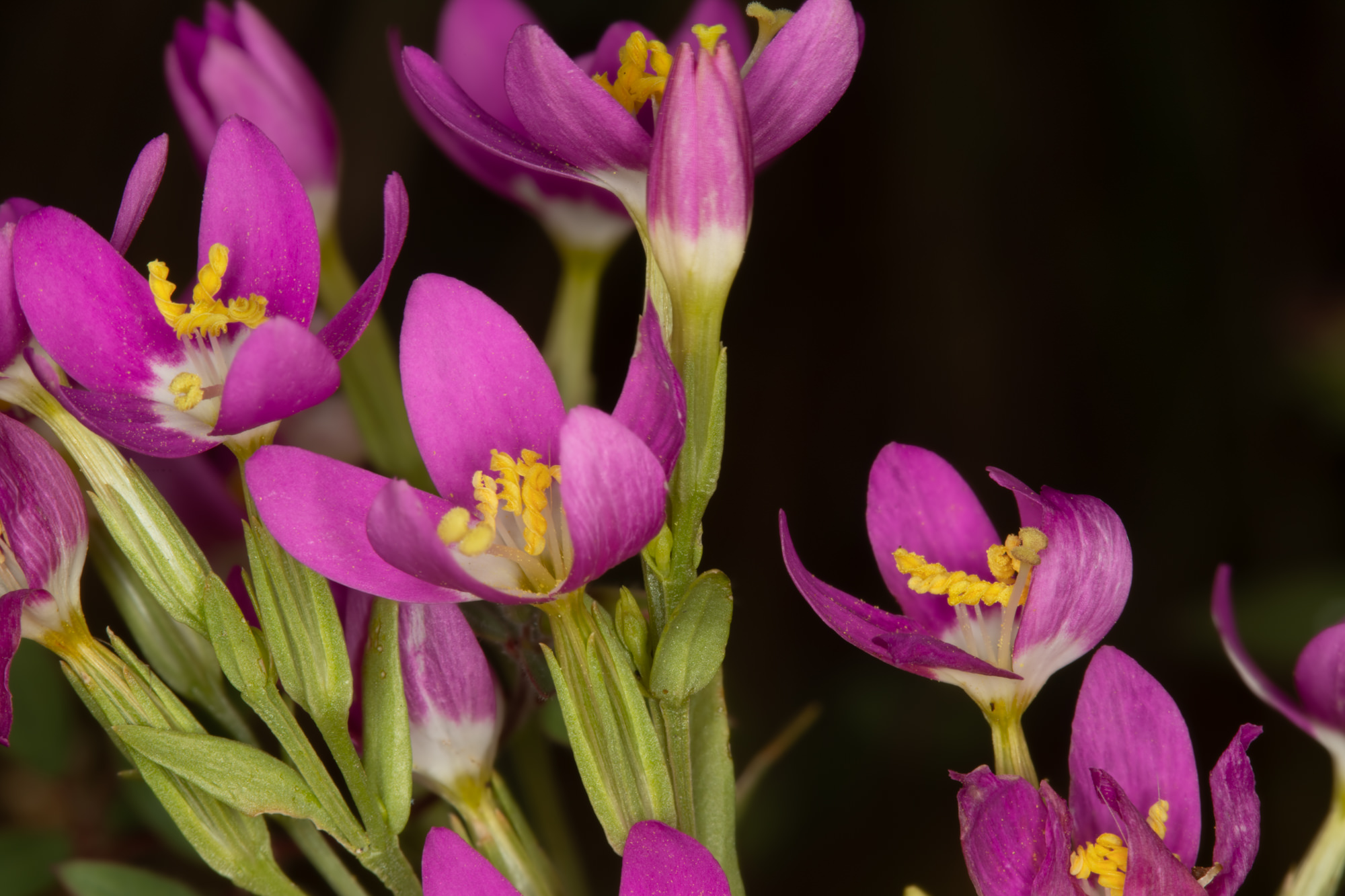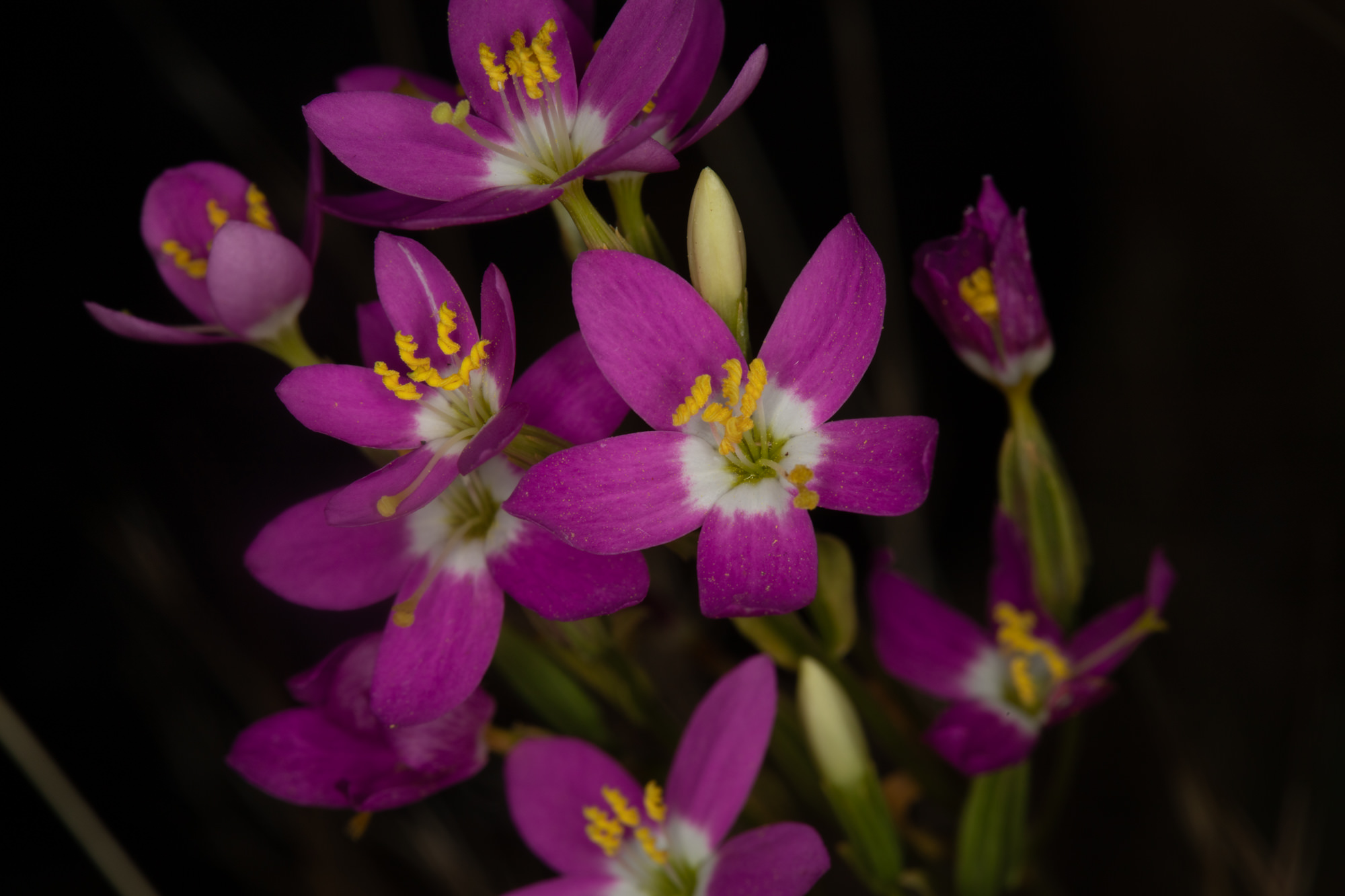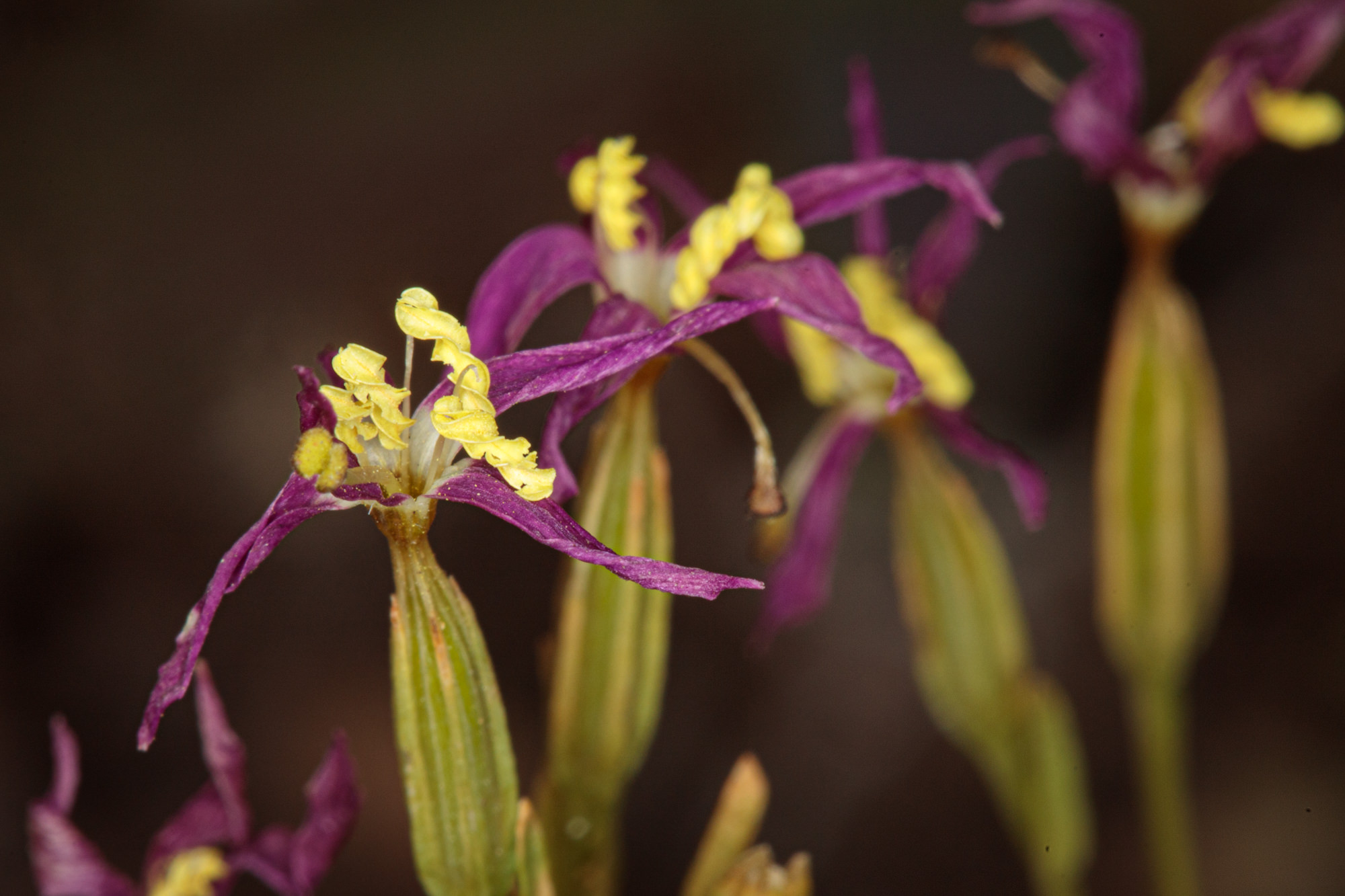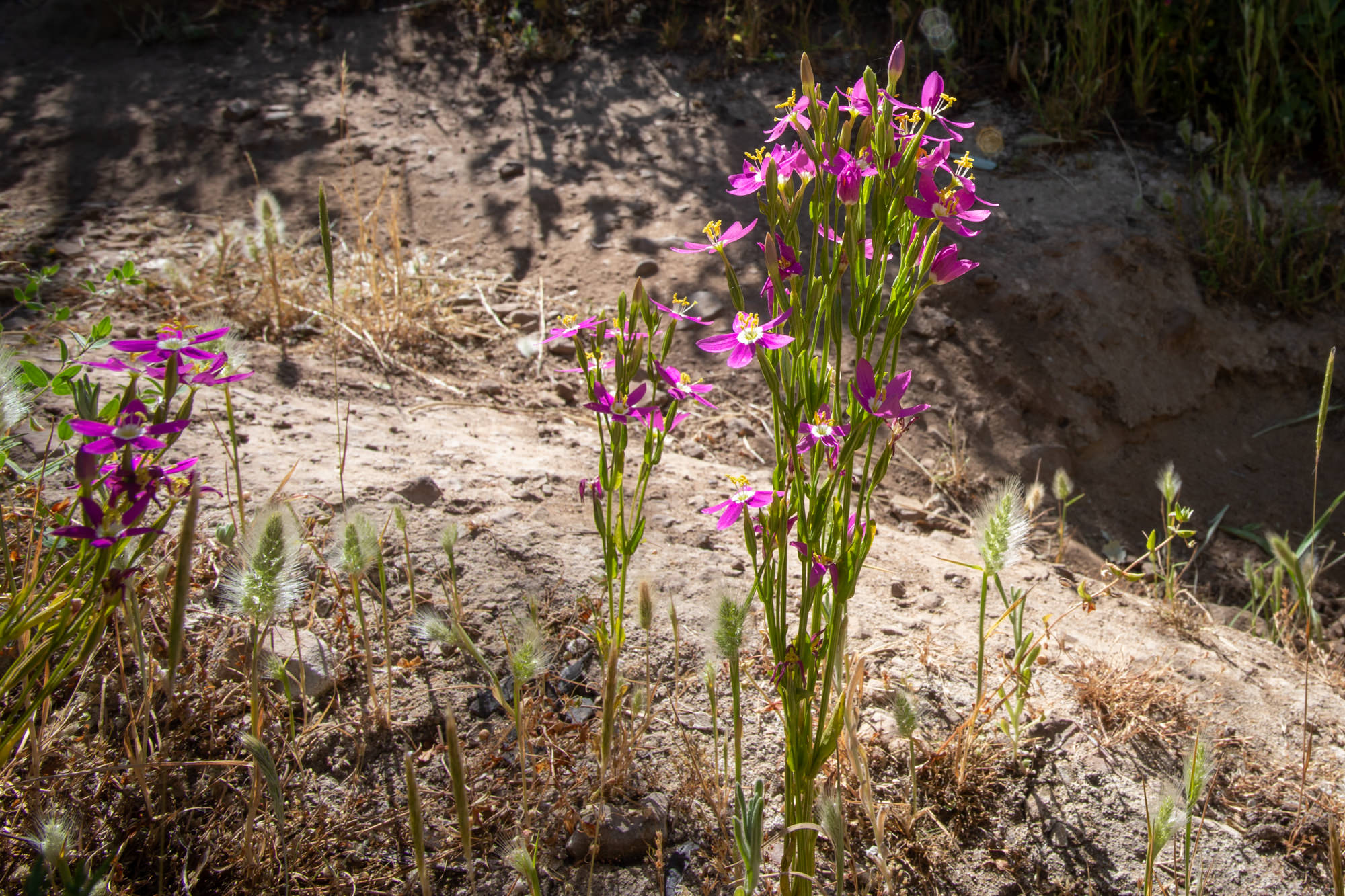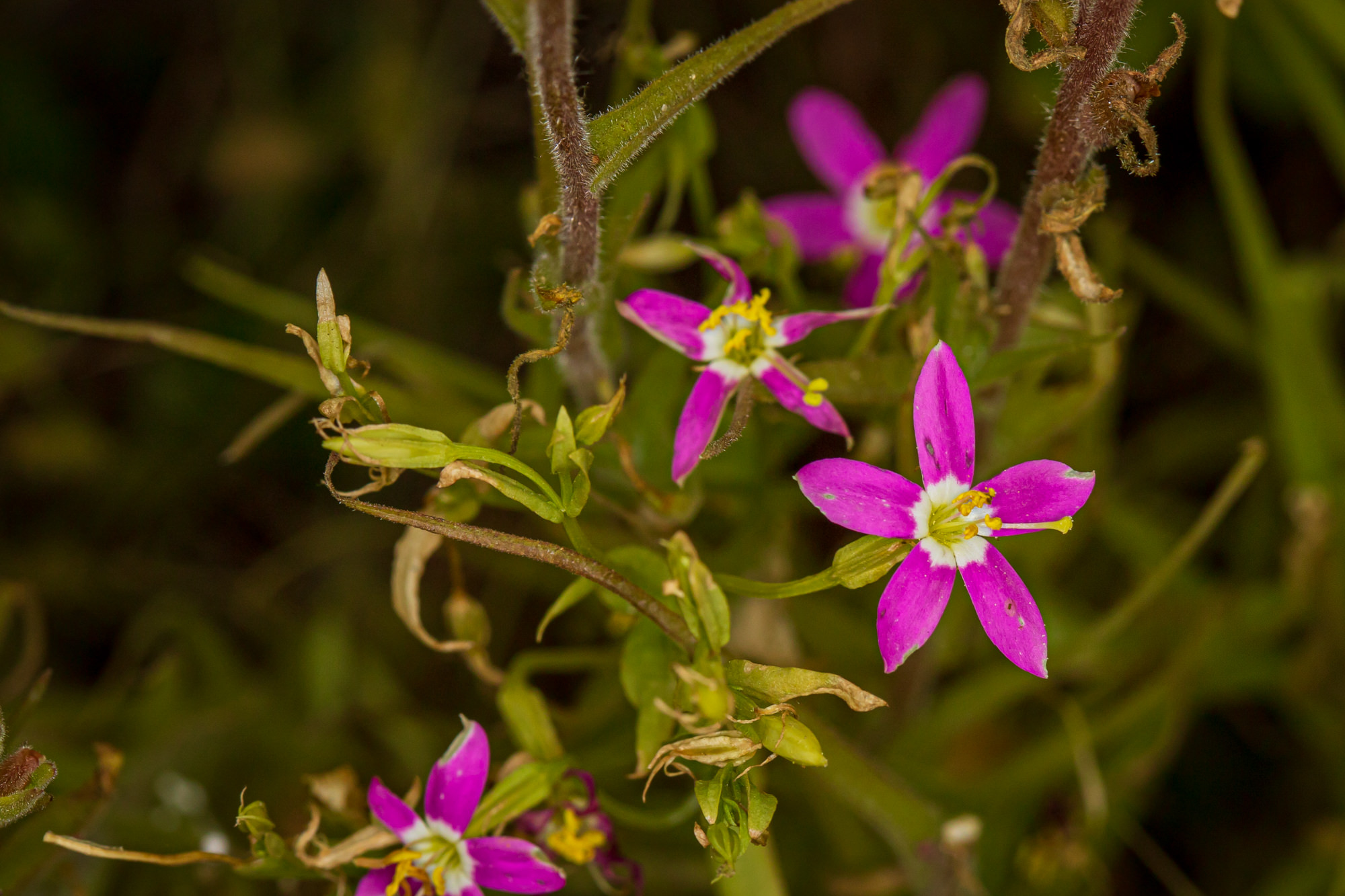Canchalagua
- Zeltnera venusta
| Common Name(s): | Canchalagua |
| Scientific Name: | Zeltnera venusta |
| Family: | Gentianaceae (Gentian) |
| Plant Type: | Annual |
| Size: | up to 24 inches |
| Habitat: | open chaparral, coastal sage |
| Blooms: | May to August |
| Fire Response: | Germinate from Seed |
Canchalagua - Zeltnera venusta - native to California - has vibrant pink to magenta hued flowers that will grab your attention. Flowering from May to July, Zeltnera venusta's flowers provide a vivid contrast between itself and the drying grasses and holds its own with the late blooming annuals. Mass blooms will have you reaching for your camera and possibly a thesaurus to find words to describe how pulchritudinous this plant is [alluring, comely]. If you have not seen it before there may be a reason - the plant is sensitive to rainfall and does not always germinate every year. Best places to observe this plant? Openings of chaparral and coastal sage scrub - Upper Solstice Canyon is where these images were captured. Canchalagua is the only representative of the Gentian family in the Santa Monica Mountains. Traits of this family are: 4 or 5 separate sepals, 4 or 5 united petals and 4 or 5 stamens - occasionally this plant will have 4 petals, sepals and stamens.
Canchalagua is a small symmetric plant (no taller than 24 inches) with distinctive, showy flowers. A white center provides contrast in the rose corolla, exserted (extending outside of the flower) stamens with yellow anthers. The stamens have anthers that twist spirally (think Fusili Pasta) after pollen has been harvested. If you have the time I have included an image where the anther has not twisted - see if you can find it. The stigma splits at the end of the style.
Native uses: Boiled leaves were used as a tonic and blood purifier. Interestingly both whites and native people used this plant.
Fire response: This plant germinates from seed.
Link to Calflora.net - the best source of this fascinating information.
Name Origin: Zeltnera: named for Louis Zeltner (1938- ) and Nicole Zeltner (1934- ), Swiss botanists, biosystematists and evolutionary biologists who specialize in plants of the gentian family. The genus Zeltnera was published by Guilhem Mansion in 2004.
venusta/venustum/venustus: charming, handsome, from Latin venustus, "charming, elegant."
Contributed by George Sherman
Last modified: August 21 2024 15:18:48.
Number of Images: 11
Image Size Total: 5,429,269
References:
Wildflowers of the Santa Monica Mountains, by Milt McAuleyFlowering Plants: The Santa Monica Mountains, Coastal and Chaparral Regions of Southern California, by Nancy Dale
Chumash Ethnobotany: Plant Knowledge Among the Chumash People, by Jan Timbrook
Leaf Shapes Primer - Botanical Terms for Leaves: - Link

